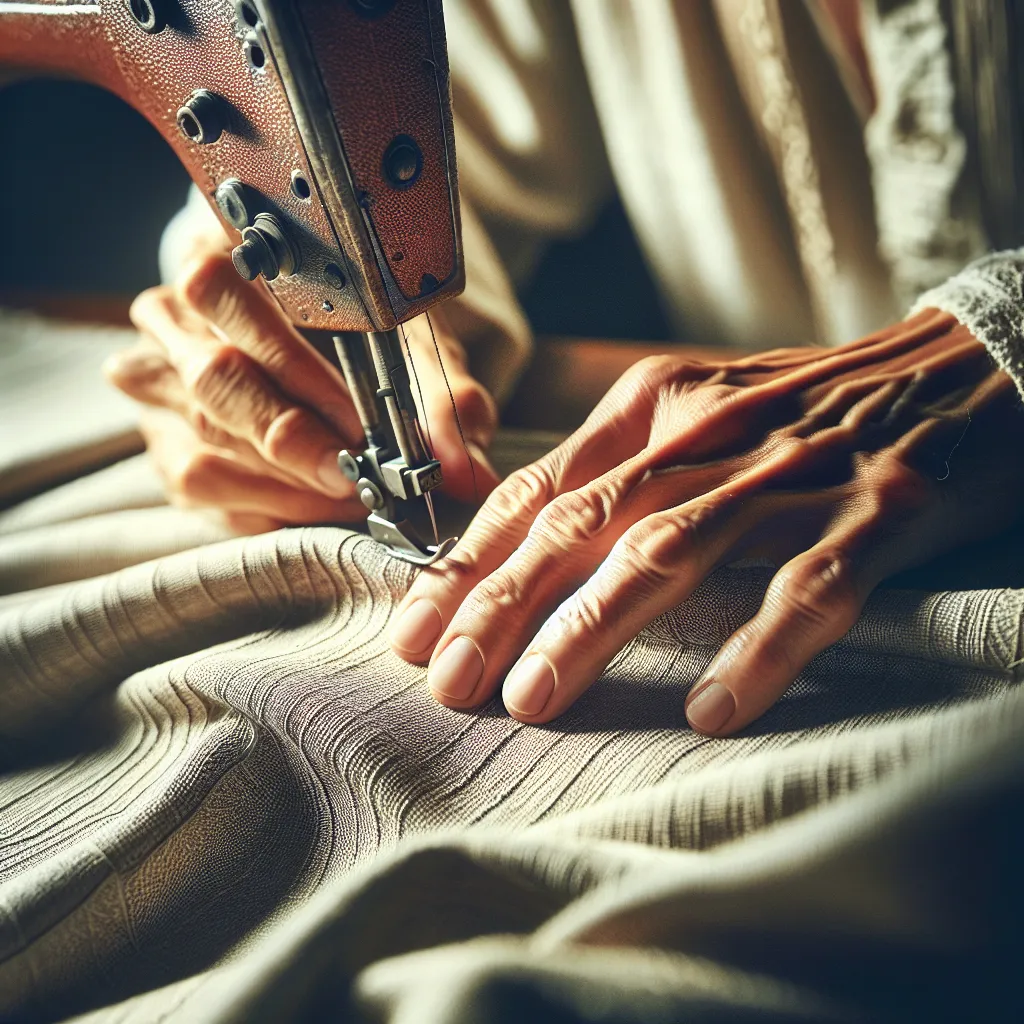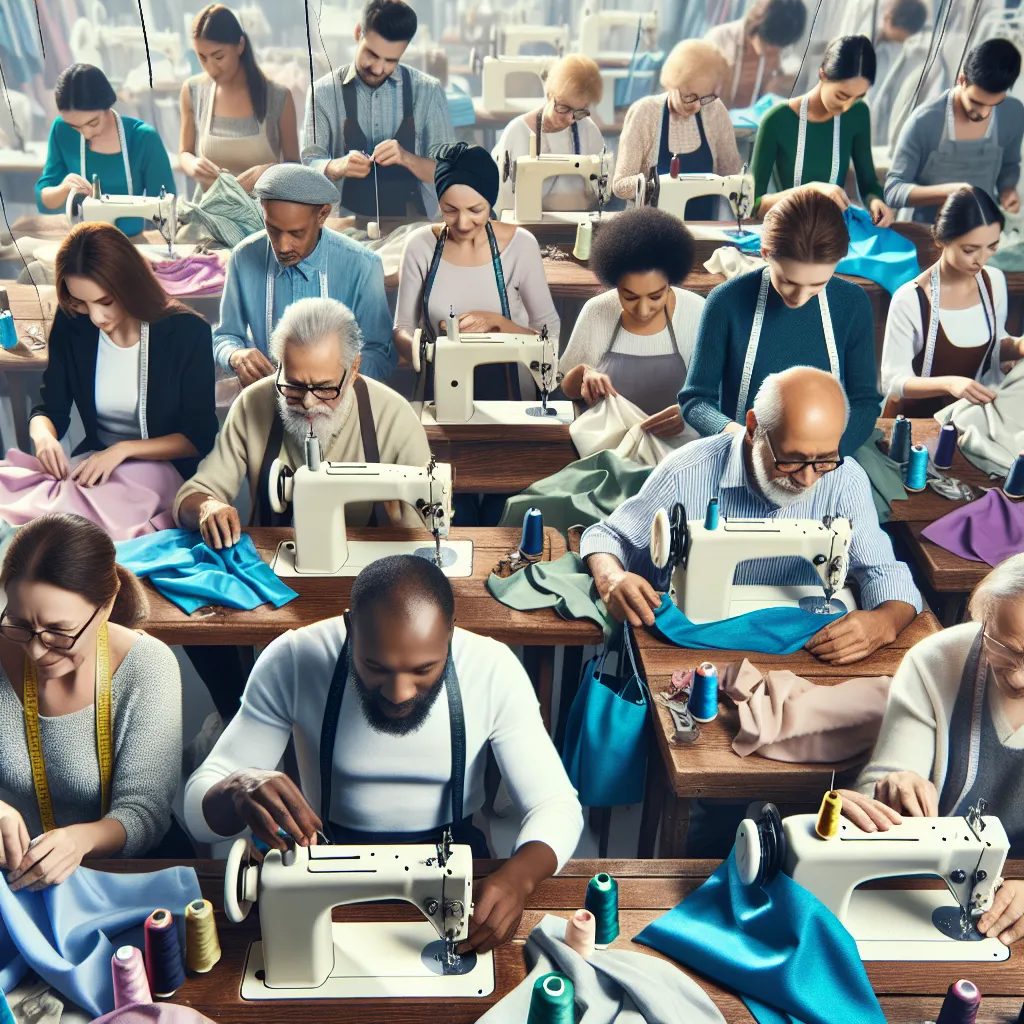The Evolution of Handmade Clothing: From Tradition to Trend
Handmade clothing has experienced a tremendous resurgence in recent years, evolving from a traditional practice to a prominent trend in the fashion industry. This shift can be attributed to a growing awareness of the environmental and ethical impact of fast fashion, leading consumers to seek out sustainable alternatives. The evolution of handmade clothing represents a return to artisanal techniques and a celebration of craftsmanship, steering fashion away from mass production and towards individuality and uniqueness.
The Environmental Impact of Handmade Clothing
The rise of handmade clothing reflects a growing trend towards sustainable fashion, as consumers are becoming more aware of the environmental impact of the fashion industry. Handmade clothing offers a more sustainable alternative to mass-produced, fast fashion items, as it often involves the use of eco-friendly materials and production processes. By supporting local artisans and small-scale production, handmade clothing reduces the carbon footprint associated with transportation and distribution.
In contrast to mass-produced clothing, which often involves harmful chemicals and dyes, handmade clothing tends to be made with more natural and sustainable materials, such as organic cotton, hemp, or bamboo. This contributes to a reduction in water pollution and the overall environmental impact of clothing production. Additionally, the craftsmanship and attention to detail in handmade clothing often result in higher-quality garments that are designed to last, reducing the amount of textile waste generated.
Furthermore, the shift towards handmade clothing encourages a slower approach to fashion consumption, promoting the idea of investing in timeless pieces that can be cherished and passed down through generations. This contrasts with the fast fashion model, which promotes disposable clothing and contributes to a cycle of overconsumption and waste. By embracing handmade clothing, consumers can make a positive impact on the environment and support the movement towards a more sustainable fashion industry.
The Artisanal Craftsmanship Behind Handmade Clothing
In recent years, there has been a noticeable shift in the fashion industry towards handmade clothing, driven by a growing trend of sustainability and ethical consumption. The artisanal craftsmanship behind handmade clothing plays a significant role in this movement, emphasizing the value of traditional skills and meticulous attention to detail.
Handmade clothing is characterized by the dedication and expertise of skilled artisans who employ time-honored techniques to create unique and high-quality garments. From hand-sewn embroidery to hand-woven textiles, every aspect of the production process reflects a commitment to preserving heritage craftsmanship and celebrating individual artistry.
Artisans who specialize in handmade clothing often draw inspiration from diverse cultural traditions, infusing their pieces with a sense of history and authenticity. This results in clothing that tells a story, capturing the essence of craftsmanship passed down through generations.
Furthermore, the emphasis on artisanal craftsmanship in handmade clothing aligns with the principles of sustainable fashion. By promoting small-scale production and utilizing local resources, handmade clothing reduces the environmental impact often associated with mass-produced garments. In addition, the integrity of the handmade process ensures that each piece is made to last, promoting longevity and reducing the disposable nature of fast fashion.
As consumers increasingly seek out alternatives to the fast fashion model, the artisanal craftsmanship behind handmade clothing offers a compelling solution. It not only provides a renewed appreciation for traditional skills but also fosters a deeper connection between consumers and the clothing they wear, highlighting the value of conscious consumption and the enduring allure of handmade craftsmanship.
The Future of Sustainable Fashion: Embracing Handmade Clothing
In the fast-paced world of fashion, there has been a noticeable shift towards sustainability, and one of the most significant movements within this shift is the rise of handmade clothing. As consumers become more conscious of the environmental and social impact of their fashion choices, the demand for sustainable and ethical clothing has surged. This has paved the way for the future of sustainable fashion, where embracing handmade clothing plays a pivotal role.
Handmade clothing offers a compelling alternative to mass-produced, fast fashion items that often come with a heavy environmental footprint. By leveraging traditional crafting techniques and using locally-sourced materials, handmade clothing significantly reduces the carbon footprint typically associated with the garment industry. Furthermore, this approach empowers local artisans and supports traditional craftsmanship, thereby contributing to the preservation of cultural heritage.
As the sustainable fashion movement continues to gain momentum, embracing handmade clothing presents an opportunity for the industry to reevaluate its practices. By prioritizing quality over quantity and encouraging a deeper connection with the garments we wear, handmade clothing aligns with the principles of slow fashion. This shift towards mindful consumption not only reduces waste but also fosters a greater appreciation for the artistry and effort that goes into creating each piece of clothing.
Looking ahead, the future of sustainable fashion undoubtedly involves a greater emphasis on embracing handmade clothing. This entails promoting transparency within the supply chain, educating consumers about the value of handmade garments, and fostering collaborations between designers and skilled artisans. Ultimately, the integration of handmade clothing into the mainstream fashion landscape holds the potential to redefine industry standards and steer fashion towards a more sustainable and ethical future.



